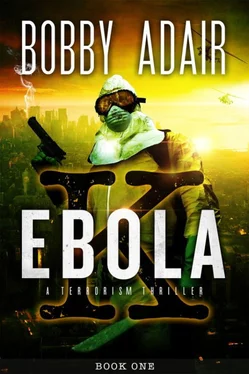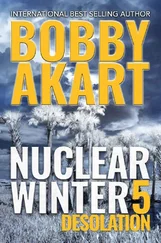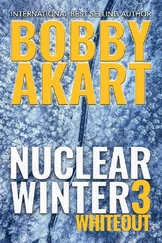He leaned over the table. “This is going to be really exciting.” All of his pent-up, squirmy excitement was coming through his voice. He took a deep breath and sat back, then looked over to his right. “Christine found it. I’ll let her go through the details.”
Barry motioned for Kevin to pass the projector connection cable across the table to him. He plugged it into his own computer.
Christine looked away and flushed. She clearly didn’t want to be in the spotlight. She cleared her throat, sat up straight in front of her laptop, and pointed at the image of Barry’s computer monitor, projecting only blue on the screen. “Barry will have something for us to look at in a second. Without going into the technical details, I was able to collect data that ties a couple of satellite phones to Najid Almasi.”
Eric sat up and smiled. “I already like where this is going.”
“One of the phones hasn’t been used in days,” Christine said, “but one has been steadily calling numbers all over Europe and the Middle East for the past forty-eight hours.”
“Who is he calling?” Eric asked.
“This is better,” Barry interrupted.
The computer screen projected on the wall flashed from solid blue to the image of a map.
Christine proceeded, “I’ve been focusing on the origin of the calls rather than gathering information about who’s on the other end.” She pointed at the projected map, and all eyes in the dimly lit room turned to the screen.
Olivia couldn’t believe what she was seeing.
Christine continued, “This is a map of eastern Uganda. You know the departure city of each of the airline tickets we’re tracking put all of the men in Nairobi. This part of Uganda isn’t maybe but a six- or eight-hour drive from there. We think Najid Almasi is in or near a little town in Uganda.” She stood up and walked over to the map, pointed to a cluster of short roads at the intersection of two others, north of a big green-colored park area. “Kapchorwa.”
Olivia gasped.
Najid turned away from watching the two young men run. “Seven doctors were coming this way up the road. They are dead now.”
Dr. Kassis nodded.
“More doctors will come with soldiers—or without—but there will be more soldiers eventually. We cannot hold out against the Ugandan army if they come in force. We didn’t come here prepared for that kind of confrontation.”
“So we leave,” replied the doctor.
“Yes, we leave. However, we need more time. We need to get these men on their planes before the world understands what evil face this Ebola virus has exposed here. Once they understand that evil—the way that we understand it—we will be out of time.” Najid looked down the road at his two runners nearing the place where the diesel tank stood.
“But what do you hope to gain by burning the village?”
Najid turned and looked at Dr. Kassis, unable to read anything unspoken. The Tyvek, the mask, and goggles hid his face. The goggles pulled at the skin on the doctor’s face and contorted the subtle movement of muscles around his eyes, and the mask fogged and dripped inside with condensed sweat. Looking at Kassis wasn’t much more effective than looking at a telephone for unspoken inflections during a conversation.
Najid took a breath. “I am not an evil man.”
“Of course not,” Dr. Kassis instantly offered.
“It was never my wish to kill any of these people, certainly not these villagers. They have done nothing, aside from being unlucky enough to be here when airborne Ebola arose.” Najid thought for a moment about how to put his thoughts into words. “Perhaps one day if the West prevails, they will work their way back through events and figure out what happened here. If they do, their history writers will paint Najid Almasi in colors more evil than Adolf Hitler. My family’s name will become an epithet of evil in the next century.”
Najid drew a deep breath to cover the pain he felt at that possibility. Such a thought would be enough to break his father’s heart. “But if we prevail, this Kapchorwan incident will be seen as it is, a necessary tragedy. These people, like the soldiers in ten thousand armies since men first picked up swords and swung them at their enemies, unwittingly and unwillingly pay for the victories of their generals and kings.”
Najid looked in Dr. Kassis’s eyes and did his best to convey the gravity he saw in his decision. “I understand what I do, and why. It is not evil that drives me, but necessity. I wish to keep this strain of Ebola and knowledge of it hidden in this village for as long as I can.”
Dr. Kassis said, “Most Africans are uneducated folk.”
“I am aware of this.” Najid didn’t like being schooled, and he let his tone communicate his displeasure.
“You asked for my honesty.”
Najid inhaled and tamped his anger. That was an emotion that never led to anything good. “Continue.”
“Many of these people do not trust modern medicine. They do not trust doctors or hospitals. You might have seen in your research that in the first two outbreaks of Ebola in 1976—north and west of here in what was Sudan and Zaire at the time—the epicenter of one outbreak was the hospital, and the epicenter became the hospital when a few sick Sudanese infected the staff, who in turn infected the other patients.”
Najid turned and looked at the hospital doors. “Are you saying that this hospital is the epicenter of this strain of Ebola?”
“I think the whole town of Kapchorwa is, but that is not my point. People talk. Stories spread. The story of fifty villages being devastated by this horrible disease—with Belgian nuns at a hospital being at the source—is a story too wicked not to pass along. I don’t doubt that everyone on the continent has heard it. I have little doubt that if these villagers tell scary stories to frighten their children at bedtime, that has got to be one of them.”
Najid asked, “What is the point of your story?”
“How many villagers have your men found in their homes?” asked Kassis.
“Many.”
“How many more do you think fled the village when they realized what was going on, taking the virus with them? How many do you think ran when we showed up in our yellow suits with guns?”
“Too many,” replied Najid.
“My point is that this strain of the virus has traveled outside this village already and is slowly spreading across the country on the feet of frightened peasants.”
“I can only hope that the runners are only recently infected, not symptomatic. Some things are beyond my control. I must accept that,” said Najid. “It may be a week or two before those turn.”
Kassis paused before speaking. “That is an overly optimistic guess.”
“That doesn’t matter. We are already committed to this course of action. We’ll control what we can, and leave the rest to Allah to decide. That will buy us time. Burning the village will not prevent the medical community from figuring out that this strain is airborne, but it will delay them finding out. The villagers in the jungle and the men blocking the road will delay them finding out. They will protect that road until they can’t. Then they will fade into the forest and shoot any medical personnel they see in the village. All of these things only buy us hours or days. But hours and days are all we need.” In Najid’s mind, it all made perfect sense.
“But the brutality of burning these people alive!”
“It is a mercy. They’ll suffer less in a fire than of the disease. Do you disagree with that?”
“The length of their suffering will be shorter. I can’t say that it will be less.”
Читать дальше












